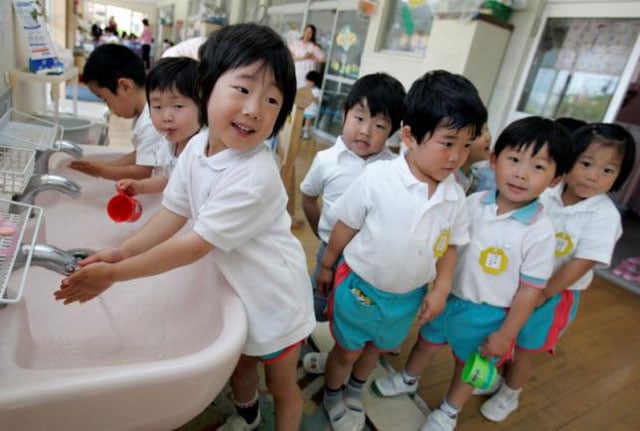
Japan's population began declining four years ago after several years of warnings that the birth rate was too low, prompting some economists to applaud Prime Minister Shinzo Abe's decision to put the issue on the agenda.
"I want to confront the demographic problem head on and place particular emphasis on policies that will contribute to raising the birth rate," Abe said on Thursday after a cabinet meeting.
However, others warn the government has fallen so far behind on the population issue that it will be difficult to raise economic growth without opening up to large-scale immigration.
Number of children in Japan slips to new low
Most countries would turn to immigration, but this has met with resistance from politicians and the public, who prize the country's mostly homogenous society.
"There is a lack of childcare facilities and improving this is important," said Hiroshi Shiraishi, senior economist at BNP Paribas Securities.
"However, this will not boost growth in the next five years. The more direct way is through immigration."
Abe wants to raise the birth rate to 1.8 per woman from 1.42 currently by loosening regulations on childcare providers and making it easier for women to return to work after their child is born.
Other proposals the government will consider are easing the tax burden for some part-time employees and making interest-free loans available for higher education.
China lifts one-child policy
The idea is to prevent the population from falling below 100 million from around 127 million currently. Advanced economies usually require a birth rate around 2.1 children per woman simply to keep the population stable.
Japan's population is projected to fall around a third to 87 million in 2060, the National Institute of Population and Social Security Research says.
Japan's working-age population peaked in the mid-1990s and has been falling ever since, data from the internal affairs ministry shows. Projections show the labor force could shrink to 44 million in 2060, which is half of its peak.
China's scrapping of its one-child policy and adoption of a two-child policy is expected to boost the country's economic growth by about 0.5 of a percentage point, a senior Chinese official said on Tuesday.

















COMMENTS
Comments are moderated and generally will be posted if they are on-topic and not abusive.
For more information, please see our Comments FAQ